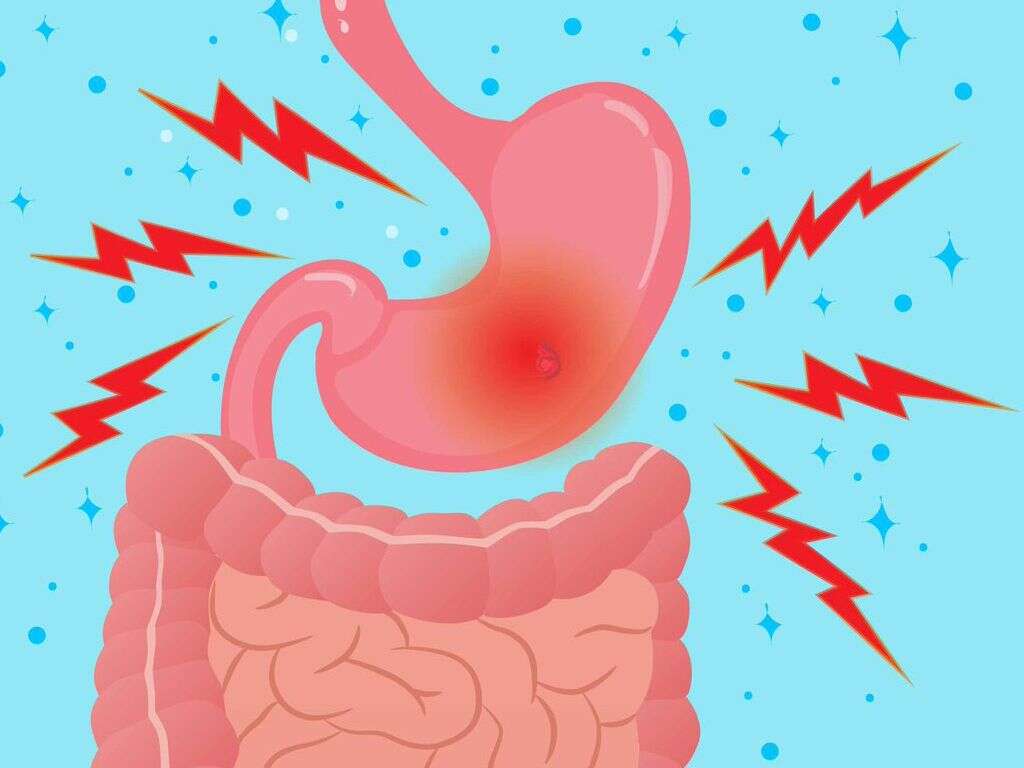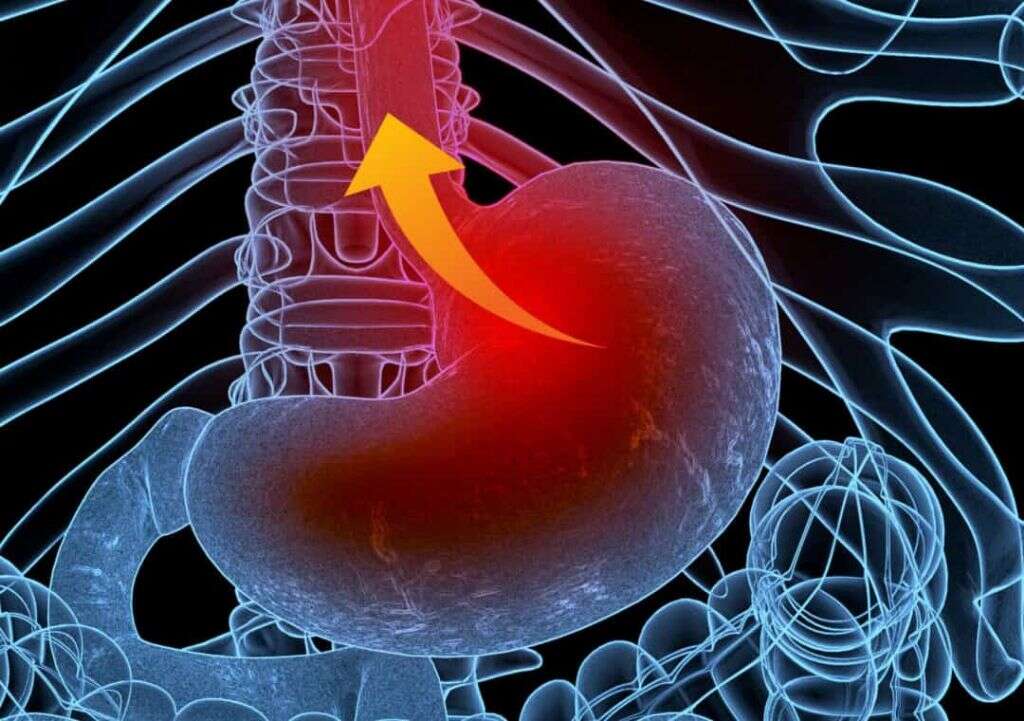What Is a Stress Ulcer?
Ulcers can occur in numerous parts of the body, and they happen when tissues of the digestive system are damaged. There are numerous types of ulcers, and around 10% of people will get a stomach ulcer sometime in their lives. Of these, stress is a common cause. However, stress can also affect ulcers in other areas of the body.
Stress can be physical or psychological, but a stress ulcer is typically triggered by severe physical stress. Stress ulcers are painful and can lead to complications if not treated properly. There are numerous treatment options, depending on the cause and location of the ulcer.

1. How Does Stress Cause an Ulcer?
People deal with stress all the time, and this affects the body in many ways. Research demonstrates that the brain and gut interact, and it shows that stress interferes with the body’s immune system, making it more difficult to heal. Most researchers believe that stress ulcers are caused by physical stress.
Physical stress that causes ulcers can be found in various forms, and the irritants are usually severe. These include surgical procedures, serious burns, long-term illness, central nervous system injuries and trauma to the body or brain. Due to the type of strain or injury, patients with stress ulcers are commonly found in hospital and intensive care settings.

2. Can an Ulcer Cause Stress?
Although many medical professionals may think that only stomach ulcers are caused by stress, they do admit that there is evidence that mental stress may make other ulcers, such as peptic and mouth ulcers, worse. Another way stress is involved is because the ulcers themselves cause patients anxiety and stress.
Mouth ulcers, especially, are stressful because of the pain and how this affects eating, talking and drinking. This not only causes mental stress but also social stress since mouth ulcers are more visible than other types of digestive ulcers.

3. What Are the Symptoms of a Stress Ulcer?
The most common symptom of any type of ulcer is pain. An open sore is another symptom that all ulcers exhibit, although these are not visible to the naked eye in any ulcer except mouth ulcers. Other symptoms of a stress ulcer include heartburn, a burning sensation, nausea, loss of appetite and weight loss.
Another sign of a stress ulcer is internal bleeding. Not every patient experiences this symptom, and often the bleeding is not substantial. However, some patients experience significant bleeding, and this can become a problem if not taken care of.

4. Are There Complications Associated with Stress Ulcers?
Fortunately, serious complications are not common with ulcers, including stress ones. However, an untreated ulcer may lead to more serious symptoms. Since a stress ulcer usually occurs when someone is already undergoing care for a different medical issue, the presence of one already complicates the situation.
The most serious issues with a stress ulcer are internal bleeding or gastric obstruction. Other potential complications include difficulty breathing, light-headedness or fainting, black tarry stools and vomiting red or something that resembles coffee grounds.

5. How Are Stomach Ulcers Treated?
The main goal of treating a stress ulcer is to reduce the acid in the stomach and decrease the risk of infections, shock and bleeding. Reducing and managing stress may help care for the stomach ulcer, and it is also good for a patient’s overall health. However, this may not be enough, especially when there are other medical issues involved.
To reduce stomach acid, the doctor may prescribe medications like proton pump inhibitors or H2-receptor antagonists since both cause the stomach to create less acid. For patients with serious internal bleeding, treatment may include a surgical procedure and a blood transfusion.

6. How Are Mouth Ulcers Treated?
Effective treatment methods for mouth ulcers often relate to lifestyle changes, including stress reduction. Because certain foods and beverages can cause or aggravate a mouth ulcer, people should avoid those items that are acidic, hard, alcoholic, hot, salty or spicy. Limiting, or quitting, the use of smoking and other tobacco products is also effective. It may also help to drink through a straw.
Medically, there are some things people can do. One is to manage any medical issues or infections related to the ulcers. It may also help to use medicated mouth rinses or take corticosteroids.

7. What Are Other Causes of Ulcers?
Stress is not the only cause of stomach ulcers. A stomach ulcer can be triggered by an infection from H. pylori bacteria. It can also be caused by the overuse of nonsteroidal anti-inflammatory drugs, also called NSAIDS, such as ibuprofen and naproxen.
The causes or triggers of mouth ulcers vary. Some foods, especially those that are highly acidic, can precipitate them. So can biting the inside of the cheek, lip or tongue. Other triggers include certain medical conditions, a viral infection and hormone changes in women.

8. What Is the Outlook for Stress Ulcers?
Stress ulcers are more serious than other types of ulcers because those who are at risk of developing them usually have other serious health issues, such as head injuries, infections and burns. The inflammation caused by a stress ulcer complicates the other conditions. Ultimately, the outlook for stress ulcers depends on the patient’s health and the severity of the ulcer.
Because most people who get a stress ulcer are already under medical care, it is important to report any symptoms right away. This allows the doctor to begin treatment immediately. Most cases of stress ulcers are able to be treated and managed.

9. Can Stress Ulcers Be Prevented?
Because stress ulcers are common for patients in intensive and emergency care, some medical professionals give patients medication to help prevent an ulcer’s development. Common prevention strategies include the same used for treatment, such as proton pump inhibitors and histamine blockers.
Some argue that prevention measures should only be taken for those meeting certain criteria. These include patients on blood thinners, those taking hydrocortisone daily or those who are on a ventilator for longer than 48 hours. Other factors include a previous ulcer, systemic sepsis, internal bleeding and those in intensive care for more than one week.

10. When Should Someone See a Doctor?
People with stress ulcers are usually already under the care of a doctor or medical team. However, after treatment and once the patient has been released from care, a doctor should be contacted if the pain continues to return or does not go away. Someone should go to the emergency room if a sharp pain appears suddenly, gets worse and does not go away.
Immediate medical care should also be used if someone has blood or tar-like stools or begins to vomit blood. These are signs of serious internal bleeding that need emergency treatment.












